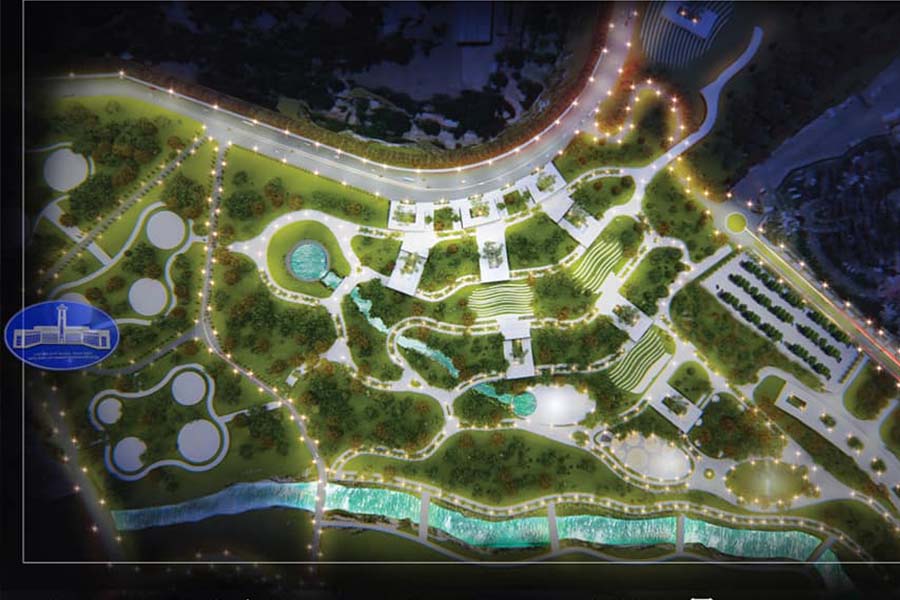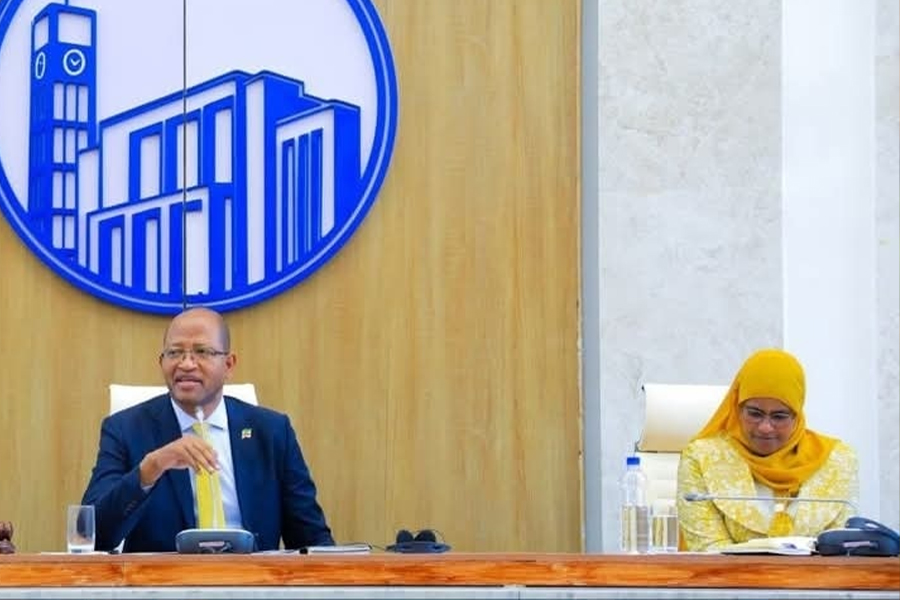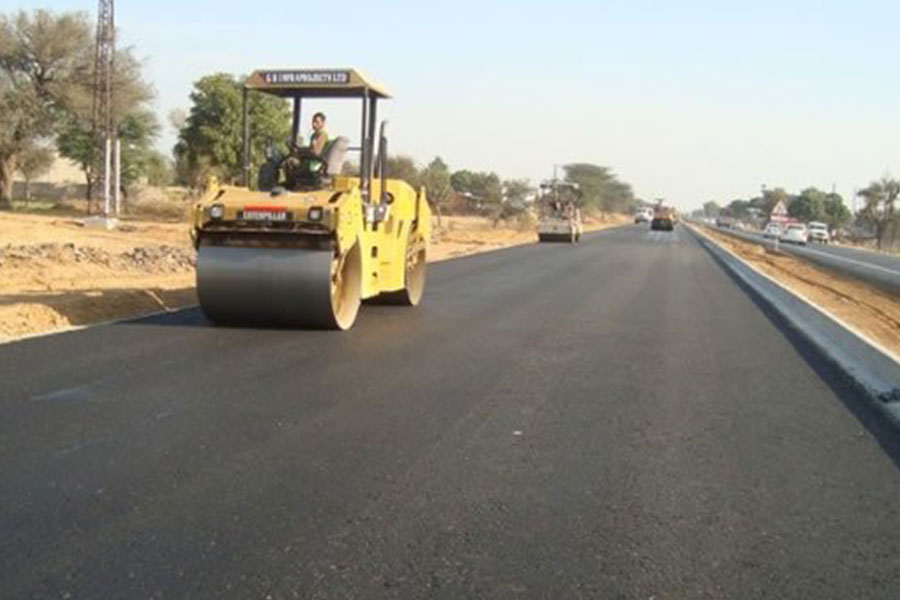
Fortune News | Feb 22,2019
Two companies have signed a half-billion Birr contract to supply and install equipment that controls and measures utility water flow to cut down on wastage. The Ministry of Water & Energy has selected nearly two dozen towns, including Dessie, Jimma and Arba Minch, for a pilot programme.
Agrabat Construction & Trading and Wada Engineering Plc have entered a joint venture deal with BAYLAN Water & Energy Metres, a Turkish company. They will supply over 41,000 water metres, including the smart metres, for the 22 selected urban centres at the cost of 200.6 million Birr (4.2 million dollars). G6 Trading has been contracted to supply and install 282.9 million Br leak detection equipment, testing benches, and welding machines in partnership with JUSTOR SPOL.SR.O, a Slovakian manufacturer.
Incorporated a decade ago, Wada Engineering Plc is constructing water and sewage treatment plants and irrigation dam infrastructures. In business for 15 years, G6 Trading is an exclusive agent of Apator Powogaz S.A, a water metre manufacturer based in Poland, among others.
The companies are committed to supplying the equipment in five months.
The project is part of the World Bank financed program designed to improve water supply and operational efficiency in secondary cities.
Asfaw Dingamo, a state minister for Water & Energy, and a representative of Agrabat Construction & Trading and Wada Engineering Plc during the signing ceremony last week.
“There will be similar works in several other cities,” said Asfaw Dingamo, a state minister for Water & Energy, signing the agreement last week at the Ministry's headquarters on Haile Gebreselassie Avenue. Ministry officials say it is necessary to replace water metres that have long passed service periods and cause waste and unregistered water usage, also known as "non-revenue water (NRW)."
The smart metres help regional water utility bureaus to collect bills in advance and save resources, according to Fitsum Birhan, a representative of Agrabat Construction and Wada Engineering.
Studies conducted by the Ministry revealed that close to 40pc of the water supply goes to waste, with the volume increasing in some places. The project aims to reduce wastage, says Tewodros Mergia, communications director at the Ministry.
"The government will benefit if it can manage to bill every drop of water supplied," said Tewodros. "And the water that goes to waste would reach users."
Over 3,500 leak detection equipment will be distributed among all towns under the project, while six-metre testing benches will go to four: Wolaita Sodo, Arba Minch, Jimma and Dessie. Addis Abeba is not part of the project, for it has relatively better control over efficiency. The Addis Abeba Water & Sewerage Authority (AAWSA) oversees the supply of 93 million cubic metres of water over the first half of the year, generating 865 million Br from utility bills.
The Arba Minch Town Water Supply & Sewerage Enterprise has been urging the Ministry for assistance in controlling wastage and administering the 11,000 cubic metres of water it supplies each day. Worqineh Abraham, general manager of the Enterprise, remains hopeful that the equipment will help reduce water slopping before reaching over 15,000 clients in the town.
"The equipment will allow us to distribute the water efficiently," Worqineh told Fortune.
The contract signed last week entails the supply of materials, installation, provision of staff training, and commissioning, according to Mulugeta Belayhun, general manager of G6 Trading.
The company supplied and installed 12 water metre testing benches for Addis Abeba for 2.2 million euros eight years ago. It has also provided leak detection equipment to the city's water company.
Leaks visible from above the ground are easy to fix, though they can be hard to identify and provide solutions for underground leakage, according to Mulugeta. That is where the leak detection equipment comes in. These machines triangulate leaks and forward information to the centre.
“The maintenance team would know where to locate the leaks," he said.
Testing benches would centrally control water metres found at residences, commercial centres and industries. Officials claim clients misuse water after reaching the metres. They hope metre testing equipment can put an end to it. It is a timely and vital move, experts like Arus Edo believe. An assistant professor at the hydraulic and water resources engineering department at Haromaya University, Arus says joints in the six-metre pipes underground are most commonly prone to leakage.
However, Arus urges officials to focus on addressing the over-utilisation of water by end-users, which he says is a major cause of water wastage.
PUBLISHED ON
Apr 09,2022 [ VOL
23 , NO
1145]

Fortune News | Feb 22,2019

Fortune News | Feb 05,2022

Radar | Jul 07,2024

Radar | Sep 23,2023

Radar | Jun 14,2020

Radar | Apr 27,2025

Radar | Sep 18,2023

Fortune News | Feb 05,2022

Radar | Aug 11,2024

Radar | Apr 08,2023

Dec 22 , 2024 . By TIZITA SHEWAFERAW
Charged with transforming colossal state-owned enterprises into modern and competitiv...

Aug 18 , 2024 . By AKSAH ITALO
Although predictable Yonas Zerihun's job in the ride-hailing service is not immune to...

Jul 28 , 2024 . By TIZITA SHEWAFERAW
Unhabitual, perhaps too many, Samuel Gebreyohannes, 38, used to occasionally enjoy a couple of beers at breakfast. However, he recently swit...

Jul 13 , 2024 . By AKSAH ITALO
Investors who rely on tractors, trucks, and field vehicles for commuting, transporting commodities, and f...

Oct 25 , 2025
The regulatory machinery is on overdrive. In only two years, no fewer than 35 new pro...

Oct 18 , 2025
The political establishment, notably the ruling party and its top brass, has become p...

Oct 11 , 2025
Ladislas Farago, a roving Associated Press (AP) correspondent, arrived in Ethiopia in...

Oct 4 , 2025
Eyob Tekalegn (PhD) had been in the Governor's chair for only weeks when, on Septembe...